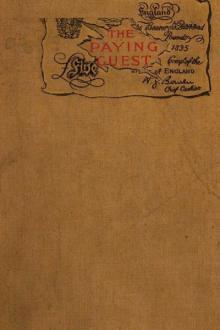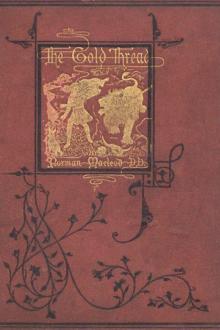Genre Fiction. Page - 184
No registration or authorisation! And it is all for free!

is "Britannia's Pastorals."[4:1] Perhaps the most noteworthy plant omitted is Tobacco--Shakespeare must have been well acquainted with it, not only as every one in his day knew of it, but as a friend and companion of Ben Jonson, he must often have been in the company of smokers. Ben Jonson has frequent allusions to it, and almost all the sixteenth-century writers have something to say about it; but Shakespeare never names the herb, or alludes to it in any way whatever. [4:2] It seems

line, "seein' hestarted so arly on the sea he can't tell when he wasn't there himself.""How was that matter, Bill?" asked one of his messmates. "They say youhave kept the captain's reckoning, man and boy, these fifteen years." "That have I, and never a truer heart floated than the man you seeyonder leaning over the rail on the quarterdeck, where he belongs,"answered Bill Marline. "How did you first fall in with him, Bill?--Tell us that," said
g sent to prison, and that this inconvenient ex- soldier should be caged up somewhere."I am going down to Esher for the week-end. I think I may be able to do something." The rolling forehead and the emphatic chin became more aggressive. "I don't like this delay. Now, can you assure me--?" Beal glanced at the clock. "I'm sorry; I am due at my hospital at half-past two. But, tell me, what do you mean--exactly--by delay?" "Nothing is being done." "It is

ll boat would be overturned by the great waves. Then Grace ran to the boat, and seized an oar, for she could not bear to let the poor men die without trying to save them; and the father could not let his brave, daughter go alone, so he followed, and they rowed off.It was hard work pulling against the strong sea, and several times the small boat was almost sunk. But at last it reached the wreck, and William Darling managed to land upon the rock, and with great care and skill helped the

aking lodgers.''No fear of that. This is evidently some well-to-do person. It's a very common arrangement nowadays, you know; they are called "paying guests." Of course I shouldn't dream of having anyone you didn't thoroughly like the look of.' 'Do you think,' asked Emmeline doubtfully, 'that we should quite do? "Well-connected family"--' 'My dear girl! Surely we have nothing to be ashamed of?' 'Of course not, Clarence. But--and "pleasant society." What about

"Pride and Prejudice" is a classic novel written by Jane Austen, first published in 1813. The story is set in the early 19th century in England and follows the life of Elizabeth Bennet, a witty and independent young woman, and her relationship with the wealthy and proud Mr. Darcy. The novel explores themes of love, marriage, social status, and class, as the characters navigate the challenges of society's expectations and prejudices. The novel is renowned for its sharp wit, vivid

essel must necessarily pass over a distance of many leagues, far, far beyond the power of human sight. How marvelous, therefore, must be the instinct which guides them unerringly to resume our company with the earliest rays of the morning light. When, in the arid desert, the exhausted camel sinks at last in its tracks to die, and is finally left by the rest of the caravan, no other object is visible in the widespread expanse, even down to the very verge of the horizon. Scarcely is the poor

han Eric. "Now," said the old woman gruffly, when she took away the remains of the supper, "you have ate what would do me for a week. You won't starve, Master Prince. Go to bed." The old woman left him, but suddenly returning, she discovered Eric on his knees. As he rose, she scoffed and jeered him, and asked, "Do you always say your prayers?" "Yes, always," replied the boy. "Who taught you?" "My mother, who is dead." The old woman

"The Little Clay Cart" by Sudraka is a classic play in Indian literature that depicts the life and society of ancient India. The play tells the story of a young Brahmin named Charudatta, who falls in love with a courtesan named Vasantasena. Despite societal obstacles and the interference of a corrupt courtier, the two must navigate their way to love and happiness. The play is notable for its use of humor, witty dialogue, and social commentary, as well as its depiction of the roles of
